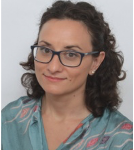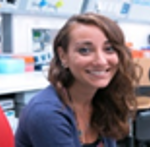
The invention relates to the selection, diagnostic and therapeutic use of nucleotide aptamers capable of binding specifically to exosomes isolated from breast cancer cells, to be used in liquid biopsies and for inhibiting tumor growth.
The invention relates to the selection, diagnostic and therapeutic use of nucleotide aptamers capable of binding specifically to exosomes isolated from breast cancer cells, to be used in liquid biopsies and for inhibiting tumor growth.

Patent status
SUBMITTED

Priority Number
IT-102020000014671

Priority Date
18/06/2020

License
INTERNATIONAL
Market
Liquid Biopsy Market was valued at USD 1,063 billion in 2019 and is projected to reach USD 5,027 billion by 2027.
The global breast cancer liquid biopsy testing devices market is poised to grow by USD 479,83 million during 2020-2024 at a CAGR of almost 24% during the forecast period.
Major players: QIAGEN N.V. (Netherlands), Roche Diagnostics (US), Bio-Rad Laboratories (US), Myriad Genetics (US), Menarini Silicon Biosystems (Italy), Illumina (US), Cynvenio Biosystems, Inc. (US) Genomic Health, Inc. (US), Thermo Fisher Scientific Inc. (US), Fluxion Biosciences, Inc. (US), Biodesix, Inc. (US), Guardant Health, Inc. (US), and Isogen Life Science B.V. (Netherlands).
Target Audience:
Liquid biopsy system manufacturers, suppliers, and distributors
Research institutes
Physicians and surgeons
Hospital
Problem
To develop new strategies for non invasive early diagnosis (LIQUID BIOPSY) of breast cancer (BC)
To develop new effective therapies. Breast cancer (BC) is the most common tumor type and one of the leading causes of cancer mortality in women with more than 450,000 women dying annually. Affect 1 women on 8 in the lifetime. Extracellular vesicles, called exosomes, are ideal candidates for the development of simple innovative approaches for early cancer diagnosis and therapy. However molecules able to distinguish cancer exosomes from normal ones, as well as exosomes released from different cancer types, are still lacking
Current Technology Limitations
Limits of traditional BC diagnostic methods (i.e Mammography, MRI, PET):
- Invasive
- Less effective and sensitive to small tumors
- Expensive
- Do not allow repeated screening
- Low specificity
Limits of liquid biopsy with markers other than exosomes (i.e ctDNA, CTCs):
Lower concentration than exosomes
Less stable than exosomes
Low cost-effectiveness
- Very difficult to transfer into diagnostic routine Limits of current methods for exosome targeting:
Lack of high specific tools
Our Technology and solutions
Recognize with high affinity and specificity BC exosomes from cell medium and patient sera
Show high stability and no binding to human serum albumin
Inhibit exosome uptake
The invention relates to the selection and the diagnostic and therapeutic use of nucleotide aptamers capable of specifically binding to exosomes isolated from breast cancer cells, to be used in liquid biopsy and for the inhibition of tumor growth.
Advantages
The developed molecules are an innovative and highly specific tool for the development of simple strategies for non-invasive early BC diagnosis, and show promising therapeutic perspective as well. High affinity and specificity
Easy modification
High stability and safety
Low batch variable
Simple production and cost effectiveness
Allow to develop non invasive system suitable for repeated screening
TRL
The team





